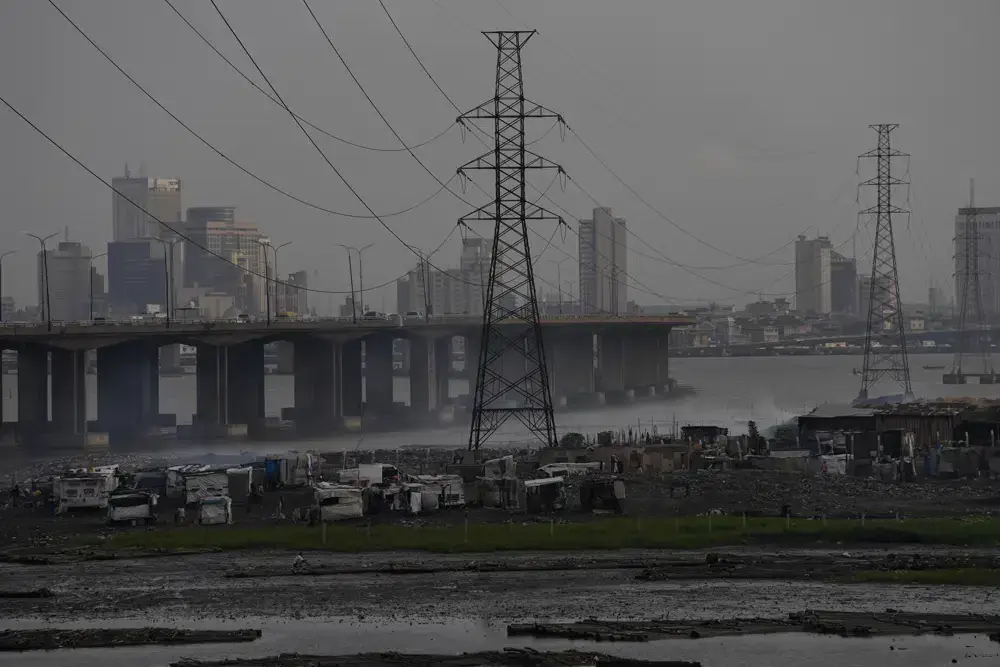Millions in African countries struggle to have power
JOHANNESBURG

From Zimbabwe, where many must work at night because it’s the only time there is power, to Nigeria where collapses of the grid are frequent, the reliable supply of electricity remains elusive across Africa.
The electricity shortages that plague many of Africa’s 54 countries are a serious drain on the continent’s economic growth, energy experts warn.
In recent years South Africa’s power generation has become so inadequate that the continent’s most developed economy must cope with rolling power blackouts of eight to 10 hours per day.
Africa’s sprawling cities have erratic supplies of electricity but large swaths of the continent’s rural areas have no power at all. In 2021, 43 percent of Africans, about 600 million people, lacked access to electricity with 590 million of them in sub‐Saharan Africa, according to the International Energy Agency.
Investments of nearly $20 billion are required annually to achieve universal electrification across sub-Saharan Africa, according to World Bank estimates. Of that figure nearly $10 billion is needed annually bring power and keep it on in West and Central Africa.
There are many reasons for Africa’s dire delivery of electricity including ageing infrastructure, lack of government oversight and a shortage of skills to maintain the national grids, according to Andrew Lawrence, an energy expert at the Witwatersrand University Business School in Johannesburg.
A historical problem is that many colonial regimes built electrical systems largely reserved for the minority white population and which excluded large parts of the Black population.
Today many African countries rely on state-owned power utilities.
Much attention has focused in the past two years on the Western-funded “Just Energy Transition,” in which France, Germany, the United Kingdom, the United States and the European Union are offering funds to help poorer countries move from highly polluting coal-fired power generation to renewable, environmentally-friendly sources of power. Africa as a region should be among the major beneficiaries in order to expand electricity access on the continent and improve the struggling power grids, said Lawrence.
“The transition should target rural access and place at the forefront the electrification of the continent as a whole. This is something that is technically possible,” he said.
The Western powers vowed to make $8.5 billion available to help South Africa move away from its coal-fired power plants, which produce 80 percent of the country’s power.
As a result of its dependence upon coal, South Africa is among the top 20 highest emitters of planet-warming greenhouse gases in the world and accounts for nearly a third of all of Africa’s emissions, according to experts.
South Africa’s plan to move away from coal, however, is hampered by its pressing need to produce as much power as possible each day.
Among the biggest critics of efforts to have countries like South Africa to transition quickly from the use of coal to cleaner energy is South Africa’s Minister of Mineral Resources and Energy Gwede Mantashe.
He is among those advocating that Africa use all sources available to it to produce adequate power for the continent, including natural gas, solar, wind, hydropower and especially coal.
“Coal will be with us for many years to come. Those who see it as corruption or a road to whatever, they are going to be disappointed for many, many years,” said Mantashe. “Coal is going to outlive many of us.”
















